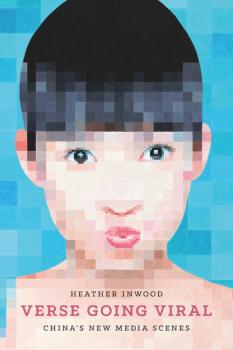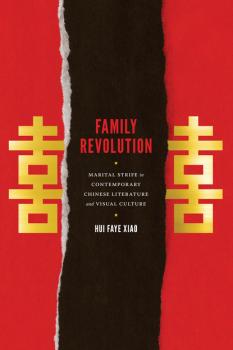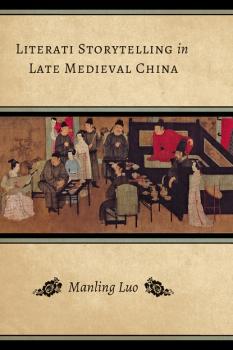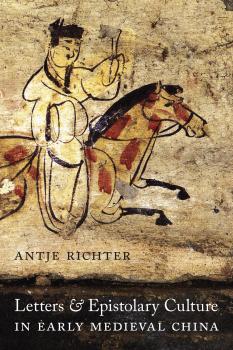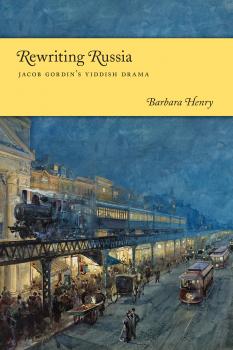ТОП просматриваемых книг сайта:















Modern Language Initiative Books
Скачать книги из серии Modern Language Initiative BooksАннотация
By examining the dynamic interplay between discourses of fiction and medicine, Novel Medicine demonstrates how fiction incorporated, created, and disseminated medical knowledge in China, beginning in the sixteenth century. Critical readings of fictional and medical texts provide a counterpoint to prevailing narratives that focus only on the “literati” aspects of the novel, showing that these texts were not merely read, but were used by a wide variety of readers for a range of purposes. The intersection of knowledge—fictional and real, elite and vernacular—illuminates the history of reading and daily life and challenges us to rethink the nature of Chinese literature.
Аннотация
Heroines of the Qing introduces an array of Chinese women from the eighteenth and nineteenth centuries who were powerful, active subjects of their own lives and who wrote themselves as the heroines of their exemplary stories. Traditionally, “exemplary women” ( lienu )—heroic martyrs, chaste widows, and faithful maidens, for example—were written into official dynastic histories for their unrelenting adherence to female virtue by Confucian family standards. However, despite the rich writing traditions about these women, their lives were often distorted by moral and cultural agendas. Binbin Yang, drawing on interdisciplinary sources, shows how they were able to cross boundaries that were typically closed to women—boundaries not only of gender, but also of knowledge, economic power, political engagement, and ritual and cultural authority. Yang closely examines the rhetorical strategies these “exemplary women” exploited for self-representation in various writing genres and highlights their skillful negotiation with, and appropriation of, the values of female exemplarity for self-empowerment.
Информация о книге
Автор произведения Binbin Yang
Аннотация
Postcolonial literature about the South Seas, or Nanyang, examines the history of Chinese migration, localization, and interethnic exchange in Southeast Asia, where Sinophone settler cultures evolved independently by adapting to their «New World» and mingling with native cultures. Writing the South Seas explains why Nanyang encounters, neglected by most literary histories, should be considered crucial to the national literatures of China and Southeast Asia.
Информация о книге
Автор произведения Brian C. Bernards
Аннотация
God's Little Daughters examines a set of letters written by Chinese Catholic women from a small village in Manchuria to their French missionary, «Father Lin,» or Dominique Maurice Pourquié, who in 1870 had returned to France in poor health after spending twenty-three years at the local mission of the Société des Missions Etrangères de Paris (MEP). The letters were from three sisters of the Du family, who had taken religious vows and committed themselves to a life of contemplation and worship that allowed them rare privacy and the opportunity to learn to read and write. Inspired by a close reading of the letters, Ji Li explores how French Catholic missionaries of the MEP translated and disseminated their Christian message in northeast China from the mid-19th to the early 20th centuries, and how these converts interpreted and transformed their Catholic faith to articulate an awareness of self. The interplay of religious experience, rhetorical skill, and gender relations revealed in the letters allow us to reconstruct the neglected voices of Catholic women in rural China.
Информация о книге
Автор произведения Ji Li
Аннотация
Verse Going Viral examines what happens when poetry, a central pillar of traditional Chinese culture, encounters an era of digital media and unabashed consumerism in the early twenty-first century. Heather Inwood sets out to unravel a paradox surrounding modern Chinese poetry: while poetry as a representation of high culture is widely assumed to be marginalized to the point of “death,” poetry activity flourishes across the country, benefiting from China’s continued self-identity as a “nation of poetry” (shiguo) and from the interactive opportunities created by the internet and other forms of participatory media. Through a cultural studies approach that treats poetry as a social rather than a purely textual form, Inwood considers how meaning is created and contested both within China’s media-savvy poetry scenes and by members of the public, who treat poetry with a combination of reverence and ridicule.As the first book to deal explicitly with the discourses and functioning of scenes within the Chinese cultural context, Verse Going Viral will be of value to students and scholars of Chinese literature, cultural studies, and media, as well as to general readers interested in China's dynamic cultural scenes.
Аннотация
As state control of private life in China has loosened since 1980, citizens have experienced an unprecedented family revolution—an overhaul of family structure, marital practices, and gender relationships. While the nuclear family has become a privileged realm of romance and individualism symbolizing the post-revolutionary “freedoms” of economic and affective autonomy, women’s roles in particular have been transformed, with the ideal “iron girl” of socialism replaced by the feminine, family-oriented “good wife and wise mother.”Problems and contradictions in this new domestic culture have been exposed by China's soaring divorce rate. Reading popular “divorce narratives” in fiction, film, and TV drama, Hui Faye Xiao shows that the representation of marital discord has become a cultural battleground for competing ideologies within post-revolutionary China. While these narratives present women’s cultivation of wifely and maternal qualities as the cure for family disintegration and social unrest, Xiao shows that they in fact reflect a problematic resurgence of traditional gender roles and a powerful mode of control over supposedly autonomous private life.
Аннотация
Scholar-officials of late medieval China were not only enthusiastic in amateur storytelling, but also showed unprecedented interest in recording stories on different aspects of literati life. These stories appeared in diverse forms, including narrative poems, “tales of the marvelous,” “records of the strange,” historical miscellanies, and transformation texts. Through storytelling, literati explored their own changing place in a society that was making its final transition from hereditary aristocracy to a meritocracy ostensibly open to all. Literati Storytelling shows how these writings offer crucial insights into the reconfiguration of the Chinese elite, which monopolized literacy, social prestige, and political participation in imperial China.
Информация о книге
Автор произведения Manling Luo





